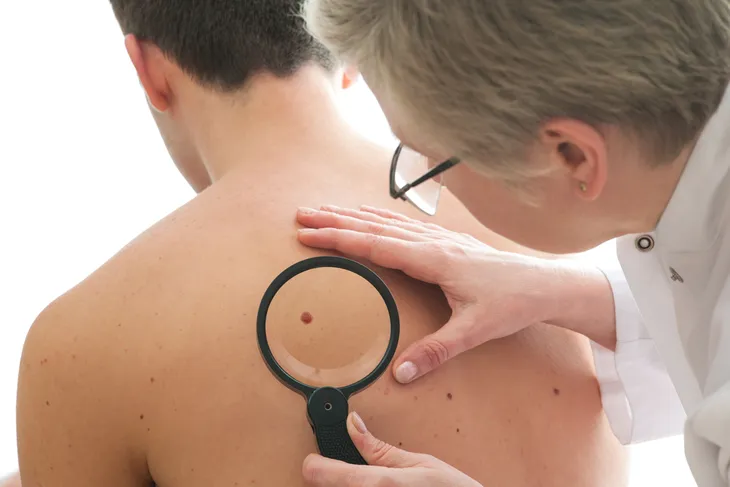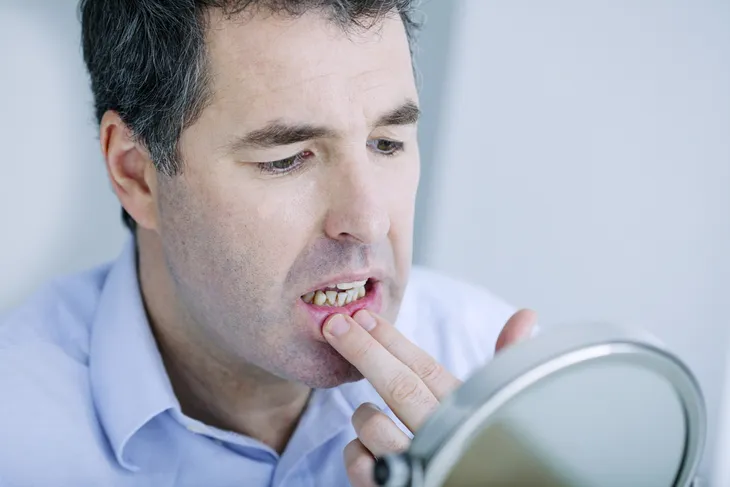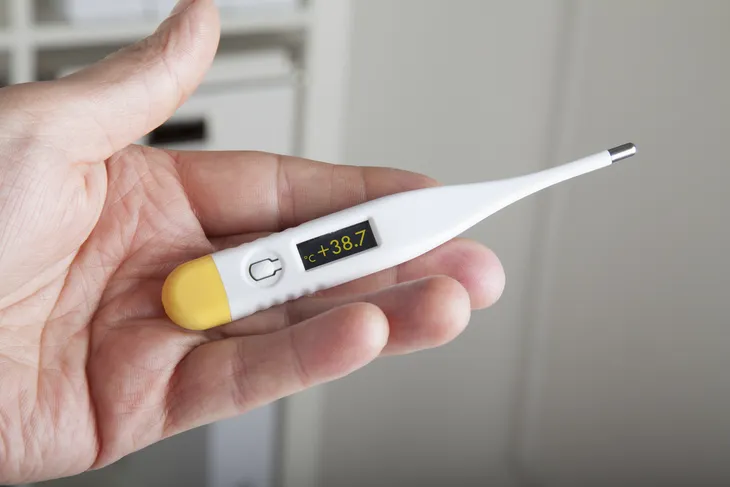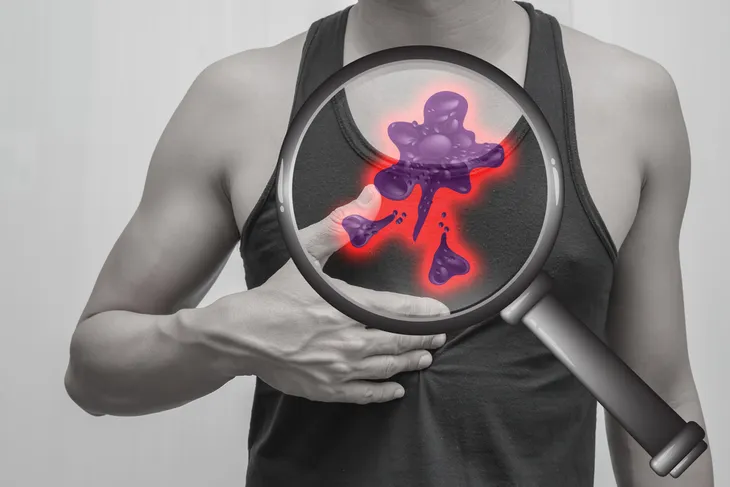Cancer is the second leading cause of death in men according to the Centers for Disease Control and Prevention (CDC). If it hasn’t affected you, it has likely affected someone you know. It’s necessary to know and understand the early signs of cancer in men and what to do if you have one of them.
It’s important to note that the cancer signs listed below are not an exhaustive list. Cancer can present in multiple ways and shapes. If you have one of these signs it is also not definitively cancer, and you need to talk to your doctor to help you determine what the symptoms indicate. Learn more below about the early signs of cancer in men.
Skin Changes
Over the years your skin is exposed to UV light and other environmental irritants that can change its appearance. The CDC tells us that men are more prone to skin cancer if they have a “family history of skin cancer, a large number of moles or unusual moles, fair skin, or tan indoors or outdoors.” While every skin change is not skin cancer, there are specific changes that spark concern.
It can be hard to determine if a new spot is concerning for skin cancer, so the ABCDE acronym can help. As the CDC explains, A is for asymmetry, does the mole have any irregularities in it? B is for border, are the edges irregular? C is for color, does the color change anywhere in the mole? D is for diameter, is it larger than a pea? And E is for evolving, has the mole changed in any way? If you answered yes to any of these questions, it’s time to talk to your doctor.
Bloody Urine
Of all cancer-related deaths, bladder cancer is the eighth most common cause. The American Cancer Society reports that one of the first signs of bladder cancer is blood in the urine. This happens in the beginning stages and is usually not accompanied by pain or other symptoms. Since it is such a prevalent disease, any sign of bloody urine should be taken seriously.
Bloody urine can appear orange, pink, or red. Some people who have bladder cancer may never see blood in their urine but have other urinary symptoms, and not everyone that has blood in their urine has bladder cancer. Instead, other causes of bloody urine may be benign tumors, infections, or kidney stones.
Difficulty Swallowing
Many symptoms aren’t concerning if they happen infrequently or never return, such as dysphagia (the medical term for difficulty swallowing). If you have dysphagia you will have trouble swallowing food and sometimes liquid. There may be a tightness in your throat and chest where food gets stuck. If this doesn’t get better or you are vomiting or losing weight, then it’s time to see your doctor.
“One cause is cancer, especially in the mouth, throat, or esophagus. Cancer growing in these parts of the body may narrow these passages,” reports the American Society of Clinical Oncology. Your doctor will likely have you undergo testing that can involve a computed tomography (CT) scan or swallow study. Dysphagia caused by cancer will worsen over time as the cancer grows, causing the esophagus to get smaller.
Lymph Node Changes
Your lymph nodes are a part of the lymphatic system that clean substances that move through the lymphatic fluid and help the immune system. The highest concentrations of lymph nodes are the groin, neck, and armpits. These little nodes can become enlarged when you are sick, which is normal and should be expected with illness.
However, if you have swelling or tenderness in your lymph nodes that don’t resolve after two to four weeks, then it’s time to have your doctor take a look says Dr. Marlene Meyers of WebMD. Lymphoma is cancer of the lymphatic system and one of the symptoms that it can present with is swollen lymph nodes.
Difficulty Peeing
As men age, they often have difficulty peeing due to prostate enlargement. This can be from benign prostate hyperplasia or a tumor growing on your prostate. The prostate gland is under the tube that carries urine, the urethra. When men have increased pressure on the urethra, they’ll experience symptoms such as difficulty starting the flow of urine and/or continuing the flow of urine, or being unable to completely empty their bladder.
“[T]he average guy should consider PSA screenings for prostate cancer beginning at age [50] and continuing to 69, even earlier if you are African American or have a family history of prostate cancer,” reports Men’s Health. The rate of treating prostate cancer successfully is very high when the cancer is caught early. If you are in the age range or have other risk factors for prostate cancer get in to see your doctor.
Testicle Changes
Lumps in the testicles can be a sign of testicular cancer. Screening for testicular lumps can catch cancer early and before it spreads. According to Herbert Lepor, MD from WebMD, “if you notice a lump, heaviness, or any other change in your testicle, never delay having it looked at. Unlike prostate cancer, which grows slowly, testicular cancer can take off overnight.”
You can perform testicular checks at home and have your doctor do one when you go in for your annual physical. If a lump is found your doctor may suggest blood testing and an ultrasound of the scrotum.
Mouth Changes
Mouth changes that involve sores on your lips or in your mouth that don’t heal that may be accompanied by white or red patches within your mouth are all signs of possible mouth cancer. These signs need to be addressed with your doctor or dentist. He or she may suggest tests or further screenings.
According to the Mayo Clinic, there is no surefire way to prevent mouth cancer, but you can decrease your risk by avoiding tobacco and heavy alcohol use. The Mayo Clinic also recommends seeing your dentist every 6-months and protecting your lips from the sun’s damaging rays with a lip balm with an SPF of at least 15 (e.g., ChapStick®)).
Unintended Weight Loss
There are a lot of people that would be thrilled to lose a few pounds. However, not all weight loss is actually a good thing. If you are losing weight without trying this can be a sign of cancer. Very Well Health reports, “unplanned weight loss is defined as the loss of 5-percent of body weight over a period of 6 to 12 months. For a 200 pound man, this would mean a loss of 10 or more pounds.”
Unintentional weight loss can be a sign of almost any cancer and warrants a discussion with your doctor. Weight loss occurs from many causes and your doctor will want to check you to make sure that yours isn’t from cancer.
Fever
Almost everyone, at some point in their life, will experience a fever. It’s uncomfortable, happens with a bacterial or viral infection, and usually can be managed with some ibuprofen or acetaminophen. When related to cancer, a fever is a late sign that happens when cancer has spread from its original location reports the American Cancer Society.
A fever raises the body temperature in efforts to kill the bacteria and viruses that cause an infection. People with a weakened immune system are prone to infection and the fevers that come with it. If you’re sick, keep your germs at home! Someone with a weakened immune system can’t afford to catch what you have.
Fatigue
Fatigue is not your normal tiredness from skipping your morning coffee. Fatigue that is unexplained and doesn’t get better after a good night’s sleep is concerning. The American Cancer Society explains that fatigue can happen early in leukemia. The source reports, “Some colon or stomach cancers can cause blood loss that’s not obvious. This is another way cancer can cause fatigue.”
Fatigue can easily be overlooked. People think this is their new normal and nothing to be concerned about. But, if you’re experiencing fatigue that doesn’t improve with sleep or if you aren’t able to do activities or work that you are accustomed to then it’s time to get checked out by your doctor.
Chronic Cough
A chronic cough can be a sign of something more than an upper respiratory infection (also referred to as the common cold). “A cough that does not go away may be a sign of lung cancer. Hoarseness can be a sign of cancer of the larynx (voice box) or thyroid cancer,” according to the American Cancer Society.
Colds that cause a cough are usually accompanied by a runny nose or congestion. If you have a cough without these symptoms or if you are coughing up blood, it could be lung cancer. Report your symptoms to your doctor to get a diagnosis and the treatment you may need right away.
Breast Changes
Breast changes aren’t ordinarily the first thing that comes to mind when you think of signs of cancer in men, but they should be. Breast cancer isn’t exclusive to women. A lump in the breast is usually the first sign of breast cancer in men.
“Genes can play a role in male breast cancer, but it may also occur due to exposure to radiation or high estrogen levels. Breast lumps are most commonly found in men in their 60s,” reports Healthline. Early detection of breast cancer is crucial to a successful outcome. Don’t hesitate to let your doctor know if you find any breast lumps.
Changes in Coordination, Vision, or Balance
There are some signs of cancer that are just too hard to ignore. Any changes in your vision, balance, coordination, and/or strength are significant changes that could indicate a brain tumor. The brainstem connects the lower part of the brain to the spinal cord. This small area is critical to life and is sensitive to increased pressure.
Since the brain is encased in a fixed space (the skull), there is minimal room for growth from cancer. When cancer does grow it places pressure on the brain or brain stem, creating adverse symptoms. Brain tumors rarely spread to other areas of the body, according to the American Cancer Society, but they can spread throughout brain tissue.
Bloody Stool
It can be incredibly alarming to look in the toilet and see blood. Thankfully, it’s not always a sign of cancer and can be due to something as simple as hemorrhoids. However, it can be a sign of colon cancer or internal bleeding, which is why you should call your doctor immediately to discuss your symptoms.
Blood in your stool can vary significantly in appearance. It can look bright red, light pink, dark brown, or even tarry black. Some people may never actually see blood in their stool, even when it’s there. Your doctor’s office can perform a simple test on your stool to detect blood (even microscopic amounts), which can give a result in seconds.
Low Back Pain
Who hasn’t experienced low back pain at some point in their lifetime? It can be a sore muscle from exercise or lifting too much weight. But, if you are experiencing tenderness in your back or hip bones, then your doctor needs to investigate a litter further to rule out the possibility of prostate cancer.
Healthline reports, “prostate cancer is especially prone to spread to the bones and may cause these symptoms within your hip bones and lower back.” Don’t let that nagging back pain go unchecked, as it can be more significant than you first thought.
Open Sore on Genitals
If you have a sore or lesion on your genitals, now is not the time to be shy and avoid your doctor. The lesion could be caused by a sexually transmitted infection (STI) or cancer and should be checked out. “About 95-percent of penile cancers start in flat skin cells called squamous cells. Squamous cell carcinoma (also known as squamous cell cancer) can start anywhere on the [genitals],” says the American Cancer Society.
Thankfully, penile cancer is rare. In the United States, penile cancer is diagnosed in less than 1 in 100,000 men. It represents less than 1-percent of cancers in men. But, just because it’s rare doesn’t mean it can’t happen and shouldn’t be taken seriously.
Pain
Cancer isn’t the cause of most pain. But, if you’re suffering from chronic pain that just isn’t getting better, then it’s time to look into it. Pain is not normal and is a sign that something is wrong.
Location, severity, and duration all play a factor in how the pain will be treated and if it’s indeed an indication of cancer. Don’t ignore your pain, talk to your doctor to get a diagnosis and an acceptable treatment plan.




















